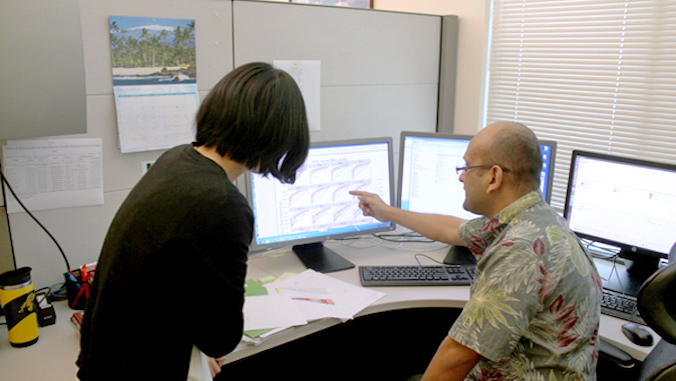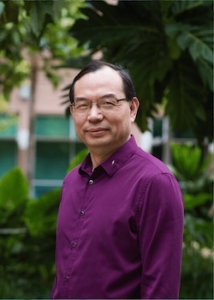
A $317,955 National Institutes of Health (NIH) grant awarded to the University of Hawaiʻi at Mānoa will help launch a Hawaiʻi data science training program based at the John A. Burns School of Medicine (JABSOM). The grant is part of JABSOM’s NIH-funded Ola HAWAII – Health and Wellness Attained by Impacting Inequities in Hawaii, a designated Research Center for Minority Institutions (RCMI) specialized center. It will allow the UH medical school to offer lectures, seminars, bootcamps and workshops to RCMI trainers, investigators, students and community partners.

Youping Deng, director of the Bioinformatics Core Facility at JABSOM, leads a team of data scientists who will offer biomedical data science training for RCMI researchers and Hawaiʻi institutions. RCMI supports specialized research centers, such as Ola Hawaii, in institutions that offer doctoral degrees in the health professions or the sciences related to health and have an historical and current commitment to educating underrepresented students.
“There is little doubt that biomedical science has become data-intensive science,” said Deng. “In the last decade, we have witnessed the booming of new biomedical technologies [as they] generate massive amounts of bio-data. This massive data includes various types of omics-data, Electronic Health Record data, petabytes of imaging and so on.”
Deng said it is essential to provide data science skills training for RCMI investigators. “As we are located in the middle of the Pacific Ocean, it is hard for Hawaiʻi-based health-disparities investigators to travel to the U.S. continent to receive structured data science training and project-focused analytical support and interactive training. Hawaiʻi investigators desperately need local data science trainers.”
The bioinformatics core team will primarily focus on data science skills of different types of “omics” including high-throughput next generation sequencing, artificial intelligence and machine learning skills using real biomedical data. They will also provide data science related for-credit courses to RCMI students and scientists.
In addition to training RCMI investigators and their collaborators in structured programs, the bioinformatic core team will also offer individual data science training for investigators managing large health and bio-datasets to foster collaborations between health-disparities investigators and our data science experts.
Read more on the JABSOM website.
This grant is an example of UH Mānoa’s goals of Excellence in Research: Advancing the Research and Creative Work Enterprise (PDF) and Enhancing Student Success (PDF), two of four goals identified in the 2015–25 Strategic Plan (PDF), updated in December 2020.

